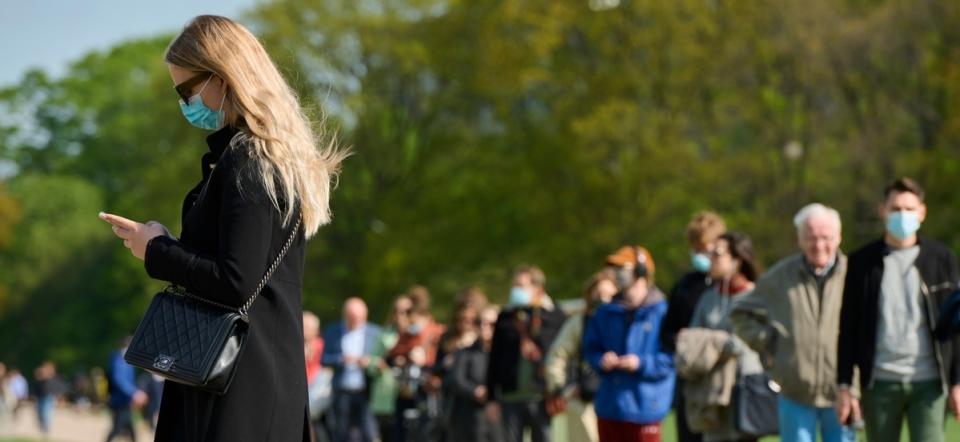The news article is written by Karolinska Institutet.
The study has been published in The Lancet Regional Health – Europe.
According to the researchers, the results of the study indicate a possible unmet public health need.
“On 5 May 2023, the United Nations declared the COVID pandemic over, but its effects on public health persist,” says Dr Anikó Lovik, postdoc researcher at the Institute of Environmental Medicine, Karolinska Institutet.
Dr Lovik and her colleagues have examined how the pandemic affected the mental health of people who had a close relationship with someone who contracted COVID-19. Data was gathered from over 160,000 adult volunteers who replied to online surveys over 22 months of the pandemic. The participants were based in four countries: Sweden, Iceland, Norway and the United Kingdom.
“The study shows that people who had a family member or close friend with a COVID-19 diagnosis were more prone to reporting symptoms of depression and anxiety than people who did not have a close friend or relative with COVID-19,” says Dr Lovik.
The proportion of people reporting significant symptoms of anxiety and depression was between seven and eight per cent higher in those who had a COVID patient amongst their close family or friends compared with those who did not, the study found.
“But if the sick family member needed to be hospitalised, the study participants experienced symptoms of depression and anxiety more often,” says Dr Lovik. “For instance, people with a friend of relative who had to be taken into intensive care reported anxiety symptoms 45 per cent more often.”
Looked at how mental health changed
The Swedish cohort had participated in KI’s “Omtanke2020” COVID-impact study, in which the researchers also looked at how their mental health changed after their friend or relative had been diagnosed with COVID.
“If the family member or a close friend had had a serious COVID infection, that is to say, been hospitalized or placed in intensive care or died, the percentage of patients with explicit symptoms remained higher throughout the year for which the participants were followed,” she says.
Bearing in mind how many people have contracted COVID-19 since the start of the pandemic, Dr Lovik believes the study indicates a possible unmet public health need:
“The family members and close friends of people with COVID don’t get enough recognition and don’t always get the help they need,” she says. “According to a Dutch study, the mental strain of losing a family member or very close friend to COVID-19 is comparable to losing someone to an unnatural death.”
She continues: “We want to draw attention to this issue. To keep the family and close friends of COVID patients under observation and, if necessary, refer them to appropriate mental health counseling, can make a huge difference.”
The study was a collaboration among researchers at Karolinska Institutet, the University of Oslo, the Norwegian Institute of Public Health and Edinburgh University. It was financed by NordForsk, the Swedish Research Council for Health, Working Life and Welfare (Forte) and Horizon 2020.
Read more about the project Mental morbidity trajectories in COVID-19 across risk populations of five nations (COVIDMENT) | NordForsk.
